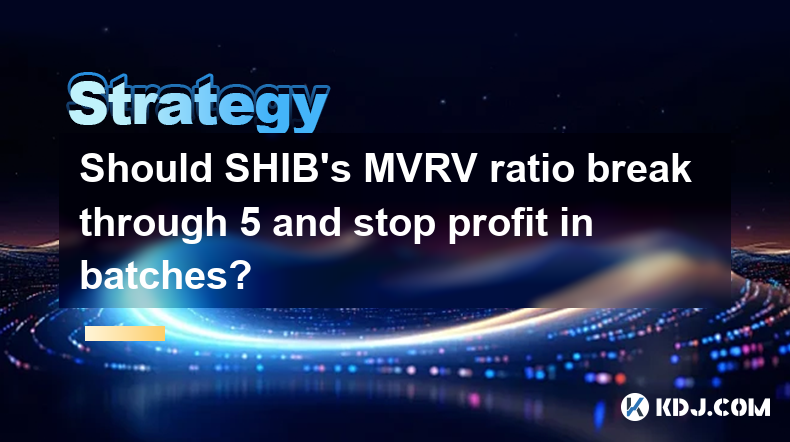-
 Bitcoin
Bitcoin $84,888.8263
-0.23% -
 Ethereum
Ethereum $1,589.1360
-1.54% -
 Tether USDt
Tether USDt $0.9998
0.00% -
 XRP
XRP $2.0854
0.10% -
 BNB
BNB $590.3962
-0.13% -
 Solana
Solana $137.6361
-0.67% -
 USDC
USDC $0.9999
-0.01% -
 TRON
TRON $0.2462
1.43% -
 Dogecoin
Dogecoin $0.1558
-0.82% -
 Cardano
Cardano $0.6218
-0.90% -
 Chainlink
Chainlink $13.4904
4.23% -
 UNUS SED LEO
UNUS SED LEO $9.3296
0.29% -
 Avalanche
Avalanche $19.6080
-2.27% -
 Stellar
Stellar $0.2447
-1.24% -
 Toncoin
Toncoin $3.0006
1.49% -
 Shiba Inu
Shiba Inu $0.0...01249
1.79% -
 Hedera
Hedera $0.1675
0.75% -
 Sui
Sui $2.1188
-1.81% -
 Bitcoin Cash
Bitcoin Cash $337.1084
0.88% -
 Polkadot
Polkadot $3.9000
2.93% -
 Hyperliquid
Hyperliquid $17.7254
-0.71% -
 Litecoin
Litecoin $78.1269
3.13% -
 Dai
Dai $1.0000
0.01% -
 Bitget Token
Bitget Token $4.3822
-3.03% -
 Ethena USDe
Ethena USDe $0.9994
0.02% -
 Pi
Pi $0.6447
0.00% -
 Monero
Monero $215.8244
2.10% -
 Uniswap
Uniswap $5.3014
-0.21% -
 Pepe
Pepe $0.0...07590
2.96% -
 Aptos
Aptos $5.0592
2.99%
What is the most economical way to buy Bitcoin
To buy Bitcoin economically, understand fees, choose low-fee exchanges like Binance, use P2P platforms, and time purchases wisely to minimize costs.
Apr 16, 2025 at 08:56 pm

Buying Bitcoin in the most economical way involves understanding various factors that can affect the overall cost, including fees, exchange rates, and payment methods. This article will guide you through the steps and strategies to minimize costs when purchasing Bitcoin.
Understanding Bitcoin Purchase Fees
Fees are a critical component when buying Bitcoin. Different platforms and payment methods come with varying fee structures. It's essential to understand these fees to make an economical choice.
- Exchange Fees: Cryptocurrency exchanges typically charge a fee for each transaction. These fees can be a flat rate or a percentage of the transaction amount. For example, some exchanges might charge 0.1% to 0.5% per trade.
- Payment Method Fees: Using a credit card or bank transfer to buy Bitcoin can incur additional fees. Credit card transactions often have higher fees compared to bank transfers.
- Network Fees: When sending Bitcoin, you'll also need to pay a network fee, which compensates miners for processing the transaction on the blockchain.
To minimize fees, it's advisable to choose exchanges with lower transaction fees and use payment methods that incur the least additional costs.
Selecting the Right Exchange
Choosing the right exchange can significantly impact the cost of buying Bitcoin. Here are some factors to consider when selecting an exchange:
- Fee Structure: Look for exchanges with low trading fees. Some exchanges offer reduced fees for high-volume traders or for using their native tokens.
- Liquidity: High liquidity ensures better price execution, which can save money over time. Exchanges with high trading volumes typically offer better liquidity.
- Security: While not directly related to costs, a secure exchange can prevent losses due to hacks or fraud, indirectly saving money.
Binance and Coinbase are popular choices known for their competitive fee structures. Binance, for instance, offers some of the lowest trading fees in the industry, with fees as low as 0.1% for makers and takers.
Using Peer-to-Peer (P2P) Platforms
P2P platforms offer another economical way to buy Bitcoin. These platforms connect buyers and sellers directly, often resulting in lower fees compared to traditional exchanges.
- LocalBitcoins and Paxful are well-known P2P platforms. They allow users to negotiate prices and payment methods, which can lead to more favorable terms.
- Escrow Services: P2P platforms typically use escrow services to hold funds until the transaction is complete, adding a layer of security without additional costs.
When using P2P platforms, it's crucial to thoroughly vet the seller and understand the terms of the transaction to ensure a smooth and economical purchase.
Utilizing Fiat-to-Crypto Gateways
Fiat-to-crypto gateways provide a straightforward way to buy Bitcoin directly with fiat currency. These services often have competitive fees and can be more economical than traditional exchanges.
- Ramp and MoonPay are examples of fiat-to-crypto gateways. They typically charge a fee of around 2-5% for converting fiat to Bitcoin.
- Payment Methods: These gateways support various payment methods, including credit cards, bank transfers, and even Apple Pay or Google Pay. The fees can vary depending on the chosen method.
To use a fiat-to-crypto gateway, follow these steps:
- Visit the gateway's website or app.
- Select Bitcoin as the cryptocurrency you want to buy.
- Choose your payment method and enter the amount you wish to spend.
- Complete the payment process, and the Bitcoin will be sent to your wallet.
Timing Your Purchases
Timing your Bitcoin purchases can also impact the overall cost. The price of Bitcoin can fluctuate significantly, so buying at the right time can save money.
- Dollar-Cost Averaging (DCA): This strategy involves buying a fixed amount of Bitcoin at regular intervals, regardless of the price. DCA can help mitigate the impact of volatility and potentially result in a lower average cost per Bitcoin.
- Market Analysis: Keeping an eye on market trends and news can help you make informed decisions about when to buy. However, predicting the market is challenging, and it's important to approach this with caution.
Using Cryptocurrencies to Buy Bitcoin
If you already own other cryptocurrencies, you can use them to buy Bitcoin. This method can be more economical as it avoids the need to convert fiat currency.
- Decentralized Exchanges (DEXs): Platforms like Uniswap and SushiSwap allow you to swap other cryptocurrencies for Bitcoin directly. These exchanges often have lower fees than centralized exchanges.
- Cross-Chain Swaps: Services like Thorchain enable you to swap tokens across different blockchains, which can be more cost-effective than traditional exchanges.
To use a DEX for buying Bitcoin, follow these steps:
- Connect your wallet to the DEX.
- Select the cryptocurrency you want to swap and enter the amount.
- Choose Bitcoin as the output token and review the transaction details.
- Confirm the swap, and the Bitcoin will be sent to your wallet.
Frequently Asked Questions
Q: Can I buy Bitcoin without any fees?
A: While it's challenging to buy Bitcoin without any fees, you can minimize them by choosing platforms with low fees, using P2P platforms, and timing your purchases strategically. Some exchanges also offer fee discounts for using their native tokens or for high-volume trading.
Q: Is it safe to use P2P platforms to buy Bitcoin?
A: P2P platforms can be safe if you take the necessary precautions. Always vet the seller, use escrow services, and be cautious of deals that seem too good to be true. Platforms like LocalBitcoins and Paxful have built-in safety measures to protect users.
Q: How can I track the best times to buy Bitcoin?
A: Tracking the best times to buy Bitcoin involves monitoring market trends, news, and using tools like price alerts and technical analysis. Platforms like TradingView and CoinMarketCap offer real-time data and analysis tools that can help you make informed decisions.
Q: Are there any tax implications when buying Bitcoin?
A: Yes, there can be tax implications when buying and selling Bitcoin. The specifics depend on your country's tax laws. In many jurisdictions, Bitcoin is treated as property, and gains from selling it may be subject to capital gains tax. It's advisable to consult with a tax professional to understand your obligations.
Disclaimer:info@kdj.com
The information provided is not trading advice. kdj.com does not assume any responsibility for any investments made based on the information provided in this article. Cryptocurrencies are highly volatile and it is highly recommended that you invest with caution after thorough research!
If you believe that the content used on this website infringes your copyright, please contact us immediately (info@kdj.com) and we will delete it promptly.
- Polkadot (DOT) price gains traction as it forms a double falling wedge pattern. This formation...
- 2025-04-21 04:25:19
- title: Hyperliquid (HYPE) Dominates the Decentralized Perpetual Futures Trading Market, Capturing Nearly 80% of DEX Volume
- 2025-04-21 04:25:19
- Sleep Token Reveal Even in Arcadia's Full Tracklisting
- 2025-04-21 04:15:12
- Rexas Finance (RXS) Emerges as the Leading Topic in Crypto Circles
- 2025-04-21 04:15:12
- 9 Crypto Unlocks to Watch in the Next Days
- 2025-04-21 04:10:14
- The cryptocurrency market remains subdued at the moment, with no notable catalysts present to push prices in either direction.
- 2025-04-21 04:10:14
Related knowledge

Is it a risk that SHIB's derivatives position is 3 times that of the spot?
Apr 20,2025 at 12:35am
Is it a risk that SHIB's derivatives position is 3 times that of the spot? The cryptocurrency market is known for its volatility and high-risk nature, and Shiba Inu (SHIB) is no exception. One of the metrics that traders and investors closely monitor is the ratio of derivatives to spot positions. SHIB's derivatives position being three times that of the...

What does SHIB's Cardano coefficient below 0.3 indicate?
Apr 19,2025 at 08:00am
What does SHIB's Cardano coefficient below 0.3 indicate? The Cardano coefficient, often used within the cryptocurrency community, is a metric that helps investors and analysts understand the correlation between different cryptocurrencies. When it comes to SHIB (Shiba Inu) and its Cardano coefficient falling below 0.3, this indicates a relatively low cor...

Is SHIB's TVL suddenly increasing by 20% a positive signal?
Apr 20,2025 at 08:07am
The sudden increase of SHIB's TVL (Total Value Locked) by 20% has sparked a lot of interest and speculation within the cryptocurrency community. TVL is an important metric that represents the total amount of assets locked in a DeFi protocol, indicating the level of user engagement and trust in the platform. In this article, we will explore whether this ...

What does SHIB's exchange inventory ratio hit a new low mean?
Apr 21,2025 at 02:50am
The term 'exchange inventory ratio' refers to the percentage of a cryptocurrency's total supply that is held on exchanges. When we say that SHIB's exchange inventory ratio hit a new low, it means that the proportion of Shiba Inu (SHIB) tokens held on cryptocurrency exchanges has reached its lowest point in a given period. This metric is significant beca...

Should SHIB's MVRV ratio break through 5 and stop profit in batches?
Apr 20,2025 at 11:35pm
The MVRV (Market Value to Realized Value) ratio is a key metric used in the cryptocurrency market to assess whether a particular asset is overvalued or undervalued. For Shiba Inu (SHIB), a popular meme coin, understanding the implications of its MVRV ratio breaking through the 5 threshold is crucial for investors looking to manage their portfolios effec...

What does SHIB's Coinbase premium continue to be negative mean?
Apr 21,2025 at 01:35am
The phenomenon of SHIB's Coinbase premium continuing to be negative is an intriguing aspect of the cryptocurrency market, particularly for those invested in or interested in Shiba Inu (SHIB). To understand this, it's essential to break down what the Coinbase premium is and what a negative value signifies in the context of SHIB. Understanding Coinbase Pr...

Is it a risk that SHIB's derivatives position is 3 times that of the spot?
Apr 20,2025 at 12:35am
Is it a risk that SHIB's derivatives position is 3 times that of the spot? The cryptocurrency market is known for its volatility and high-risk nature, and Shiba Inu (SHIB) is no exception. One of the metrics that traders and investors closely monitor is the ratio of derivatives to spot positions. SHIB's derivatives position being three times that of the...

What does SHIB's Cardano coefficient below 0.3 indicate?
Apr 19,2025 at 08:00am
What does SHIB's Cardano coefficient below 0.3 indicate? The Cardano coefficient, often used within the cryptocurrency community, is a metric that helps investors and analysts understand the correlation between different cryptocurrencies. When it comes to SHIB (Shiba Inu) and its Cardano coefficient falling below 0.3, this indicates a relatively low cor...

Is SHIB's TVL suddenly increasing by 20% a positive signal?
Apr 20,2025 at 08:07am
The sudden increase of SHIB's TVL (Total Value Locked) by 20% has sparked a lot of interest and speculation within the cryptocurrency community. TVL is an important metric that represents the total amount of assets locked in a DeFi protocol, indicating the level of user engagement and trust in the platform. In this article, we will explore whether this ...

What does SHIB's exchange inventory ratio hit a new low mean?
Apr 21,2025 at 02:50am
The term 'exchange inventory ratio' refers to the percentage of a cryptocurrency's total supply that is held on exchanges. When we say that SHIB's exchange inventory ratio hit a new low, it means that the proportion of Shiba Inu (SHIB) tokens held on cryptocurrency exchanges has reached its lowest point in a given period. This metric is significant beca...

Should SHIB's MVRV ratio break through 5 and stop profit in batches?
Apr 20,2025 at 11:35pm
The MVRV (Market Value to Realized Value) ratio is a key metric used in the cryptocurrency market to assess whether a particular asset is overvalued or undervalued. For Shiba Inu (SHIB), a popular meme coin, understanding the implications of its MVRV ratio breaking through the 5 threshold is crucial for investors looking to manage their portfolios effec...

What does SHIB's Coinbase premium continue to be negative mean?
Apr 21,2025 at 01:35am
The phenomenon of SHIB's Coinbase premium continuing to be negative is an intriguing aspect of the cryptocurrency market, particularly for those invested in or interested in Shiba Inu (SHIB). To understand this, it's essential to break down what the Coinbase premium is and what a negative value signifies in the context of SHIB. Understanding Coinbase Pr...
See all articles





















































































